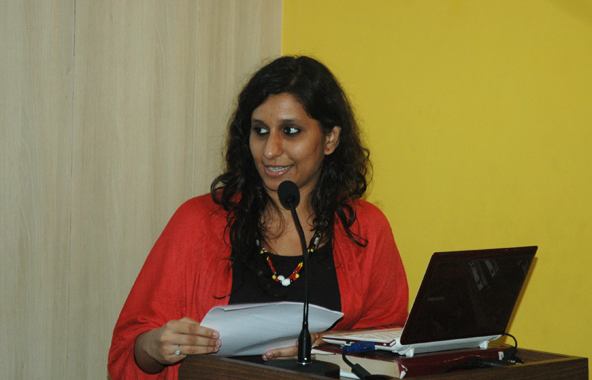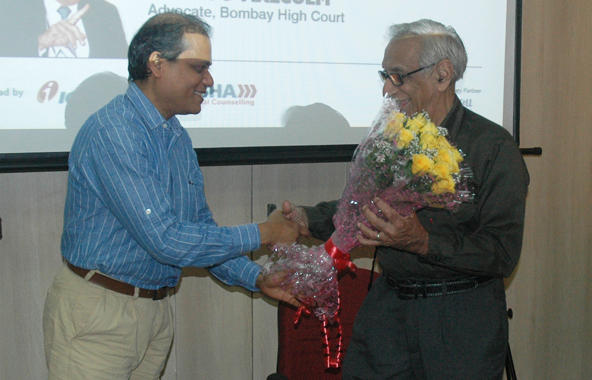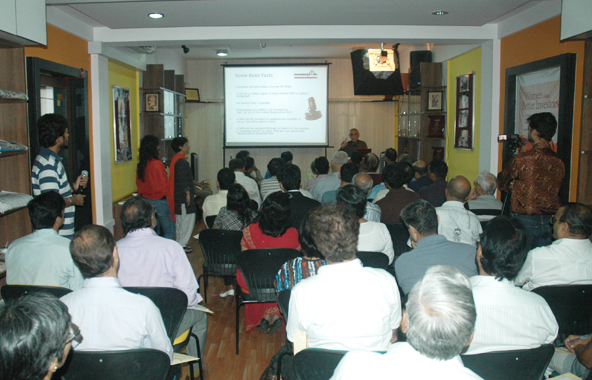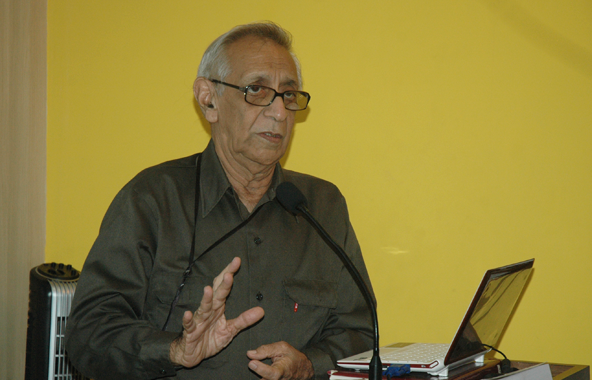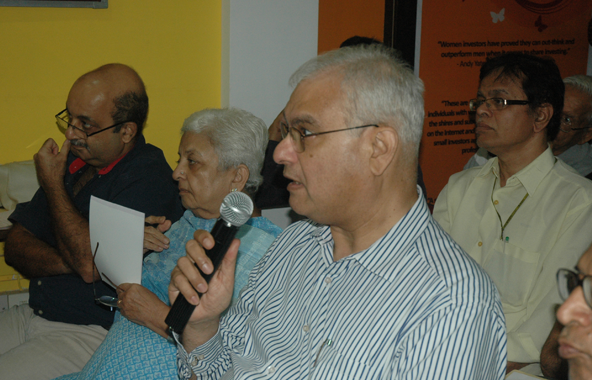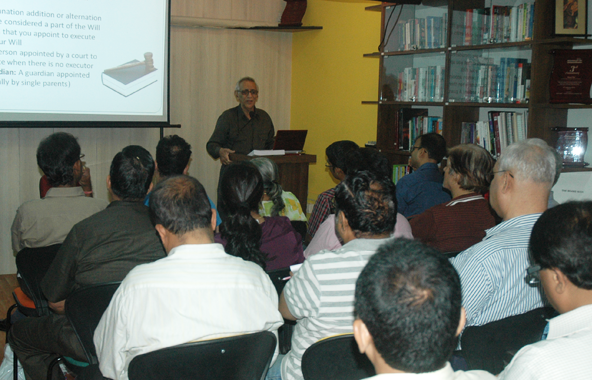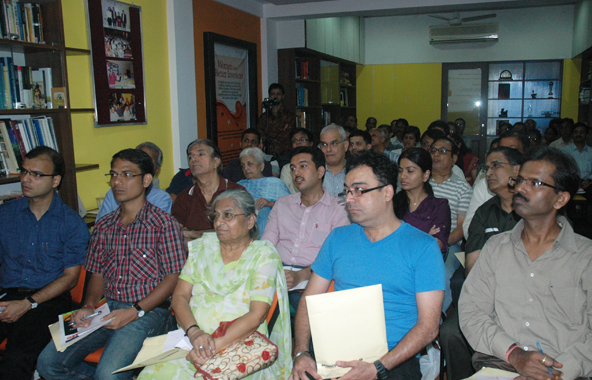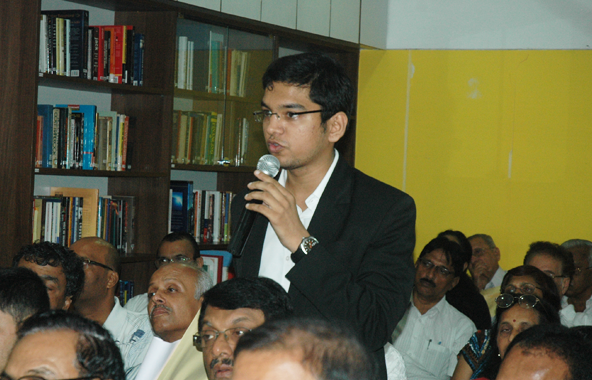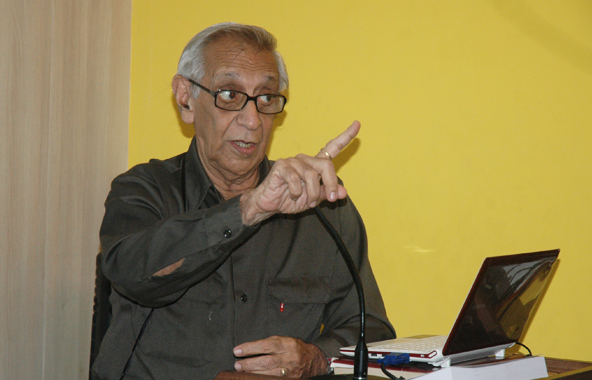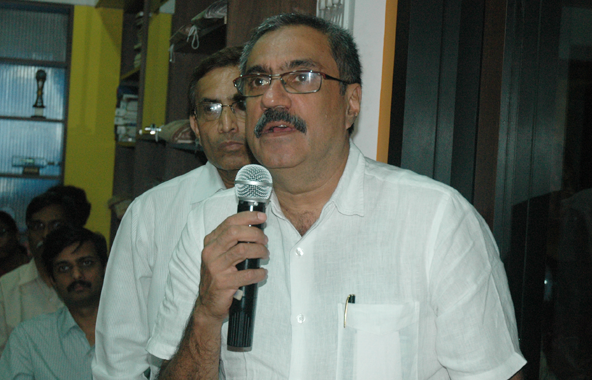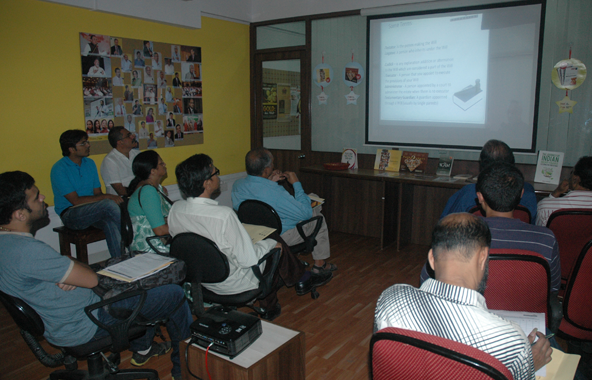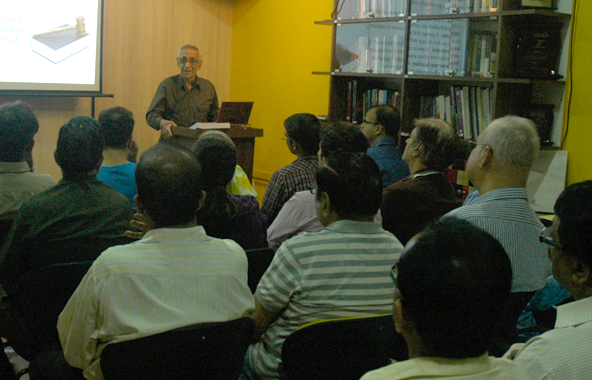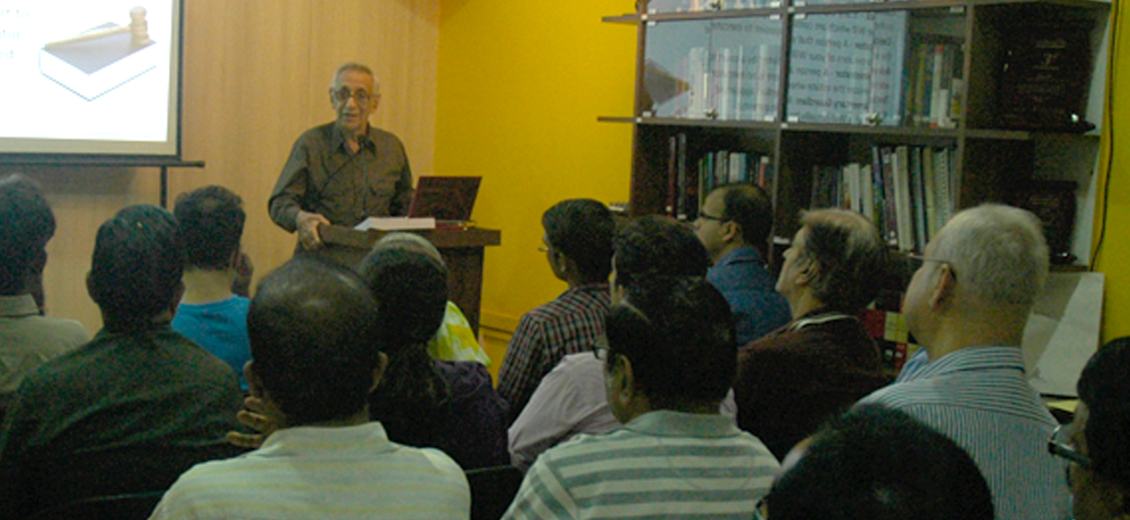
A Will simply carries out your wishes after death. One has to give specific instructions about what has to be done with the movable and immovable properties one owns. A well-drafted, properly-executed Will ensures that your wishes are honoured. The courts spend much of their time resolving property disputes for want of a Will or in case of a poorly drafted Will. Despite knowing just how contentious these issues can be, it is common to postpone the making of a Will. At a Moneylife Foundation seminar on “How to write you own Will” advocate Bapoo Malcolm, a very well experienced lawyer in both civil and criminal matters, described to the audience the practical aspects of making a Will.
Explaining the simplicity of creating a Will, Mr Malcolm described that, “A Will is a simple document to be written in simple language. Preferably, avoid legalese. You simply have to give specific instructions about what has to be done with the movable and immovable properties you own and the property you might acquire in future. It would be best if it reads like a balance sheet. Just specify the property and the person.” A Will should be legible and clear to understand. “A Will does not need to be registered, for that matter, even a handwritten Will written on a simple piece of paper will suffice,” he added. A registered Will is also open to being challenged in a court of law, as the content of a Will has nothing to do with its registration. Mr Malcolm emphasised that no matter how many wills a person makes, it is the last Will, or that which is proved to be the last, is what is considered.
A Will needs to be clear and concise, leaving no room for interpretation. “Remember that a Will is basically, ‘you speaking from the grave’. Obviously, you cannot answer any further questions when the Will has to be interpreted,” said Mr Malcolm. “A Will would be interpreted according to the word of the law, which may not assign the same meaning as you intended.” Therefore, one should specify everything in the Will that would be subject to interpretation. For example, while mentioning names it is important to specify the relationship along with the date of birth of the person, as there could be common names. Also, if you wish to intentionally leave someone out of your Will, especially if it is a close family member, it is better to mention the name in the Will, if not, the person may contest the Will by saying you have forgotten their name, he explained.
One should not worry if one feels that one has left out someone, as a Will can always be updated. “One should not wait for the last moment and should prepare a simple Will. This can be updated any time. At any point of time you should have a valid Will,” explained Mr Malcolm.
Mr Malcolm spoke of the basic components of a Will as well as terms such as testator, executor, codicil, testamentary guardian and a detailed discussion on probate of a Will. He covered issues related to Wills, like registration, litigation possibilities, witnesses, executors, intestate problems. He also answered the queries of Moneylife Foundation members who raised their doubts.


